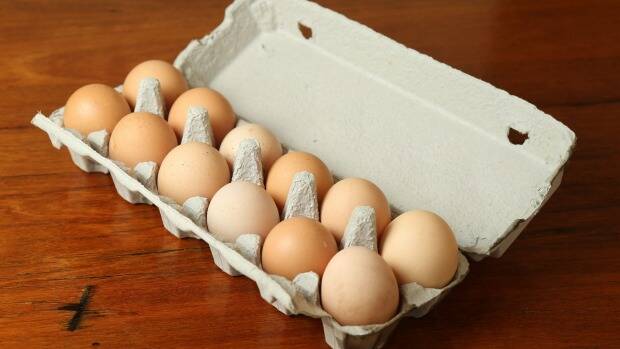
THE latest scandal hitting the shelves of our major supermarkets has re-hatched the age-old message to buy local.
Subscribe now for unlimited access.
$0/
(min cost $0)
or signup to continue reading
Supermarket giant Coles is under pressure to move eggs off its warm shelves in a bid to protect shoppers from salmonella, matching the practice being rolled out by its main competitor.
It follows community uproar over warnings that the practice could lead to an increased risk of a salmonella outbreak.
Despite Coles denying any risk of storing eggs at room temperature, one local egg producer believes the debate only reinforces the need to dodge supermarkets altogether and keep it local.
“Eggs kept at a constant level is just as important if not more important as the actual temperature,” Holbrook Paddock Eggs owner, Sam Pincott, said.
“As long as they’re not stored right next to hot chicken bain-marie then I don’t see a huge issue with it. Absolutely it reinforces the idea to buy local.”
The company stores all of its eggs in a 15-degree cool room, which is monitored and audited by food authorities.
In the family’s own kitchen, eggs are usually stored on the bench but over summer when the temperature fluctuates, they’re moved to the fridge.
“We do make sure all of our freight is definitely refrigerated so we know they are kept at a constant temperature,” Mr Pincott said.
Coles declined to comment on its decision to move eggs off refrigerated shelves, instead pointing to a statement issued by Food Standards Australia New Zealand (FSANZ) on Monday.
“There is no food safety reason to require whole eggs to be refrigerated at retail,” FSANZ said in the statement.
“However retailers may choose to refrigerate eggs for their own reasons, for example, to maintain quality of the egg such as firmness of the yolk or reduce spoilage.”
An egg's shell, membrane and the egg white all form a barrier to stop food poisoning bacteria from contaminating the inside, but problems can arise when the egg is cracked.

